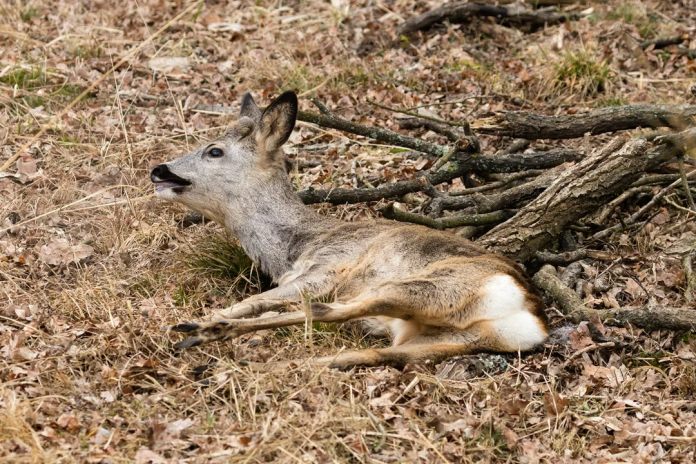Rethinking Compassionate Responses to Roadside Wildlife Accidents
It is an all-too-familiar yet heartbreaking scene: a wildlife accident on a country road. For many of us, such an event might be a distressing blip in an otherwise ordinary journey. But what happens when the aftermath reveals systemic shortcomings in handling these incidents?
A recent encounter on the A352 between Dorchester and Wareham highlights the need for greater compassion and efficiency in how authorities respond to injured wildlife. Around 5 PM on December 29, a vehicle struck a young deer, propelling it into the path of another car, which also collided with the animal. The deer, grievously injured but still alive, lay moaning in pain on the roadside.
The occupants of the second car promptly called the police and reached out to a local, qualified dispatcher – an individual with years of experience in humanely dispatching injured animals, including working for the police before his retirement. Although the dispatcher arrived quickly and presented his credentials, the attending officers refused to let him intervene.
Instead, the police insisted on waiting for their armed response team, the only officers authorised to carry out the act. When pressed, they could not provide an estimated arrival time for the team, leaving the injured deer to suffer unnecessarily. The dispatcher, though willing and capable, was ultimately instructed to leave the scene.
A Compassionate and Practical Alternative
This situation underscores a growing concern: current protocols, while adhering to formal procedures, often lack the agility and compassion needed in such urgent circumstances.
In the past, police forces in some areas relied on local, qualified dispatchers who could swiftly respond to calls of this nature. This approach not only minimised the suffering of injured animals but also reduced traffic disruptions. However, the centralisation of authority to armed response units has introduced delays, which exacerbate distress for both animals and witnesses.
Comparable Incidents
This is not an isolated case. Similar examples from other regions paint a picture of inefficiency:
- A Fox on a Country Lane in Norfolk
A fox was struck by a passing car late one evening. Witnesses called the police, but the armed response team was unavailable due to higher-priority tasks. A local gamekeeper, fully licensed to dispatch injured animals, offered assistance but was turned away. The fox ultimately succumbed hours later, prolonging its suffering unnecessarily. - A Badger on the A39 in Somerset
A family travelling home came across an injured badger writhing on the roadside. Unable to move the animal safely, they called the police, who similarly cited armed response protocol. The team arrived two hours later, only to find the badger had already died from its injuries. - A Roe Deer near Perth, Scotland
In a rare but positive outcome, a local wildlife officer happened to be nearby and was authorised to dispatch a suffering deer swiftly. The case demonstrated how having trained and trusted individuals locally can make a significant difference.
Balancing Procedure with Compassion
While it is crucial for police forces to adhere to regulations and maintain accountability, a rigid adherence to protocol can sometimes lead to unnecessary suffering. Allowing qualified individuals, such as retired officers, gamekeepers, or wildlife professionals, to assist under clear guidelines could provide a more humane and efficient solution.
Recommendations for Change
- Reintroduce Local Dispatchers
Police forces should consider reinstating partnerships with trusted local professionals. These individuals could be on a vetted list, ensuring they meet high standards of training and accountability. - Streamline Decision-Making
Empower officers at the scene to make compassionate and pragmatic decisions when armed response teams are unavailable. - Public Awareness and Training
Provide guidance for the public on whom to contact and what to do in cases involving injured wildlife. This can reduce delays and ensure appropriate action is taken swiftly.
A Call to Action
To those in positions of influence, please reconsider how such incidents are managed. While procedural integrity is vital, it should not come at the expense of unnecessary suffering. Compassion and efficiency are not mutually exclusive, and with small changes, we can create a system that better serves both people and animals.
For now, the lingering question remains: how many more such incidents will occur before a more humane and practical approach is adopted?
Thanks to Polly Greenway.







